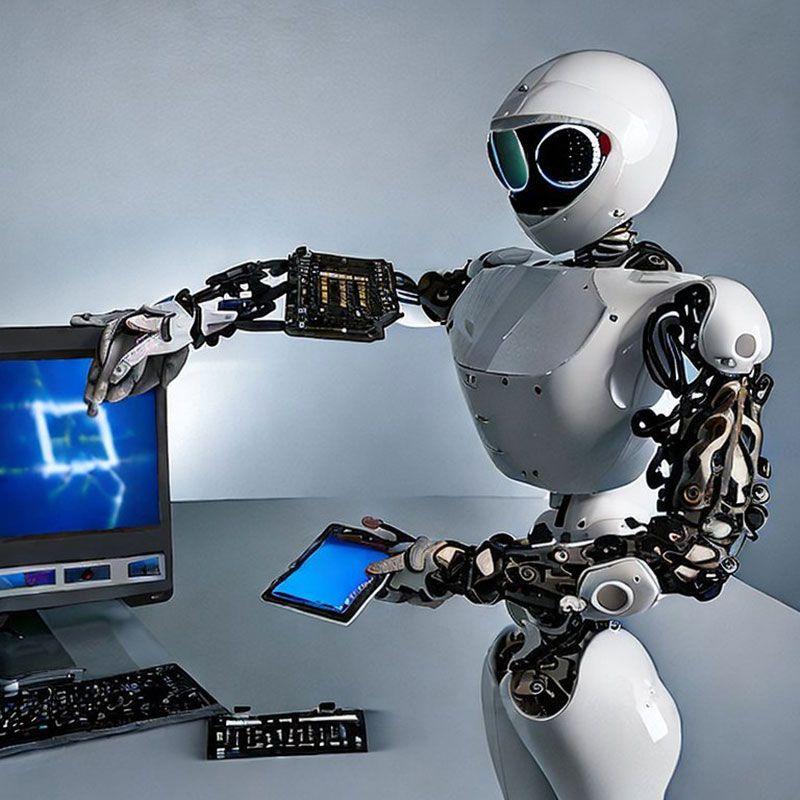In a world where technology continues to advance at an exponential rate, the rise of artificial intelligence presents both incredible opportunities and daunting challenges. As a national security insider, navigating the complex landscape of AI, one must carefully consider the potential risks that come with unleashing this powerful force. By crunching the numbers and analyzing the data, it becomes clear that the dangers of AI cannot be ignored. Join us as we delve into the calculations and explore the math behind the looming threats of artificial intelligence in the realm of national security.
The Rise of Artificial Intelligence in National Security
As technology continues to advance at a rapid pace, the integration of Artificial Intelligence (AI) in national security has become a hot topic of discussion among policymakers and defense experts. While AI has the potential to revolutionize the way we approach security challenges, it also poses significant risks that must be carefully considered. One key concern is the potential for AI systems to be hacked or manipulated by malicious actors, leading to disastrous consequences for national security.
Another issue is the ethical implications of using AI in military operations. The idea of autonomous weapons systems making life and death decisions on the battlefield raises serious questions about accountability and the rules of engagement. As we explore the possibilities of AI in national security, it is crucial that we have a thorough understanding of the risks involved and take steps to mitigate them before it’s too late.

Assessing the Potential Threats of AI in the Military
As a former intelligence analyst for the Department of Defense, I have seen firsthand the potential threats that AI poses to national security. The ability of AI to make decisions in split seconds without human intervention is both a blessing and a curse. While AI can enhance military capabilities and protect soldiers on the battlefield, it also raises serious concerns about the potential for autonomous weapons systems to fall into the wrong hands.
One of the biggest dangers of AI in the military is the risk of unintended consequences. As algorithms become more complex and autonomous systems become more independent, there is a real possibility that AI could make decisions that go against human commands or ethical norms. The potential for AI to misinterpret information or act on faulty data is a major concern, especially when it comes to critical decisions in high-pressure situations. It is crucial that we address these risks now before they escalate into a full-blown crisis.

Recommendations for Safeguarding National Security in the Age of AI
When it comes to safeguarding national security in the age of AI, it is vital to consider the potential dangers and threats that this evolving technology poses. As a national security insider, I have seen firsthand the impact that AI can have on our security landscape. From cyber attacks to autonomous weapons, the risks are real and ever-present.
One key recommendation for protecting national security in the age of AI is to invest in robust cybersecurity measures. This includes enhancing encryption protocols, strengthening network defenses, and implementing advanced threat detection systems. Additionally, it is essential to establish clear guidelines and regulations regarding the use of AI in defense and intelligence operations. By prioritizing security and accountability, we can mitigate the risks associated with AI technology and safeguard our nation’s interests.

Collaboration Between Experts and Policymakers for Mitigating AI Risks
In a recent study conducted by a group of national security experts, it was revealed that the risks associated with artificial intelligence are far more severe than previously thought. The study, which analyzed data from various security agencies and tech firms, found that the potential dangers of AI range from cyberattacks to the development of autonomous weapons systems.
<p>Experts and policymakers need to work together to develop strategies for mitigating these risks and ensuring that AI technologies are used responsibly and ethically. By collaborating and sharing information, we can better understand the potential threats posed by AI and take proactive measures to address them before they escalate. It is essential that we prioritize the safety and security of our society as we continue to advance AI technology.</p>As advancements in AI technology continue to accelerate at an unprecedented pace, it is crucial for national security insiders and policymakers to carefully consider the potential risks and dangers that come with this exponential growth. By arming ourselves with knowledge and understanding the potential implications of AI, we can work towards developing informed policies to ensure the safety and security of our nation and the world as a whole. As we navigate the complex landscape of AI, let us proceed with caution and thoughtfulness, always keeping in mind the potential consequences of our actions. Only by embracing a proactive and vigilant approach can we truly harness the power of AI for the betterment of society while safeguarding against its potential dangers.


